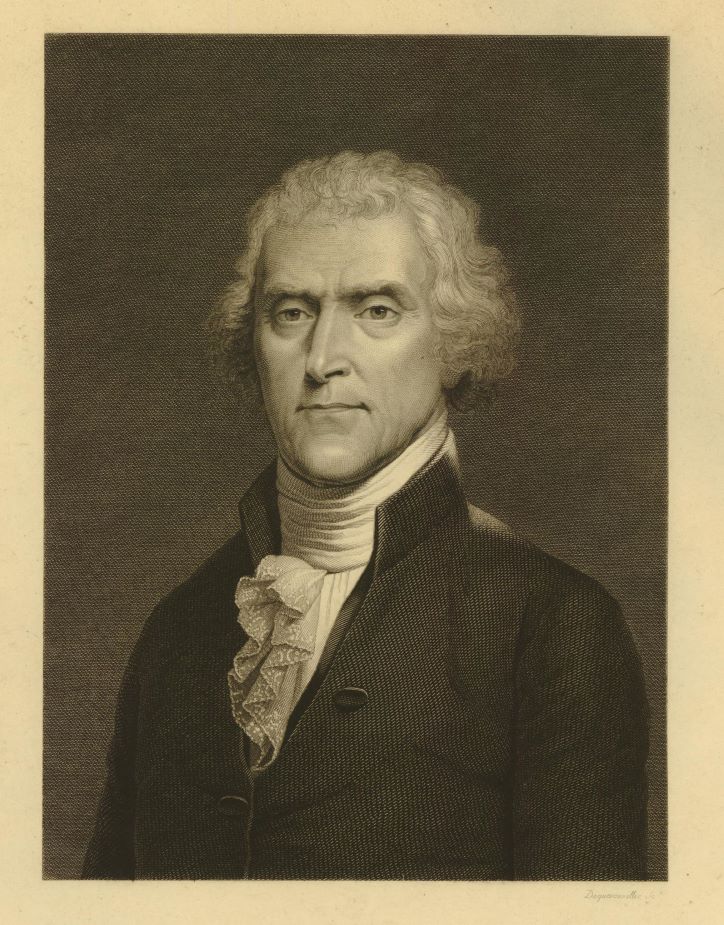Liberty Matters
Closed Systems and Open Futures

I would like to thank Hans Eicholz and my fellow respondents for a conversation that for me has been very helpful and instructive and that I hope will continue in some form in the future. What appears to be at issue in today's debates about Thomas Jefferson, the Declaration of Independence, and the American Revolution is not the importance of slavery and race in this history: these topics have been studied with great sophistication for several decades, and, of course, still merit further study.[i] What appears to be at issue instead is the question of how the history of American slavery and racism should be approached. If our view of the past is primarily structured by static binaries such as White and Black, Racist and Antiracist, as in the approaches Eicholz describes as the "new histories of slavery and race," something fundamental is in danger of being lost. While arguments on timelessly "systemic" oppression may seem to be corroborating themselves in this manner, we risk being deprived of a great achievement of modern historical thought: the idea of history as a complex, open-ended process of change, including conceptual change. This idea is relevant on at least two levels. On the level of the historical subject matter, we cannot understand the past if we lose from view the open futures of the contemporaries, i.e., their necessary ignorance of the long-term consequences of their thought and actions. For instance, Jefferson was certainly a man who tried his best to envision the American future and anticipate the responses of future generations to the American Revolution, but he turned out to be so mistaken in predicting the moral preferences of his future audiences that the moments in his writings when he tried most intently to explain away the contradictions of his position on slavery are typically the moments when his views appear most glaringly contradictory today.
On the level of historical method, it is likewise crucial to insist on the open-endedness of historical research. In this case, the open future of history implies a dialectical process that is not threatened by the discussion of conflicting sources and contradictory views, but existentially depends on it. However, in approaches premised on a system of timeless binaries that is questioned only at the peril of being identified with the wrong side of an eternal moral divide, this open-endedness is no longer guaranteed. In the closed systems of the "new histories," the only possibility for intellectual innovation tends to consist in throwing the same moral binaries into ever sharper relief. This sharpening of contrasts is best achieved by scanning the past for the worst possible examples of whiteness and racism and then elevating these examples to the status of prime movers of the universe. Also as a result of this paradoxical method, we are witnessing today the uncanny phenomenon of reactionary ideas returning through the back door into what purport to be radically progressive works of history. For instance, while seemingly critical interpretations of the Civil War are dangerously leaning toward "Lost Cause" arguments that privilege a White way of life and downplay the abolition of slavery, the actual Confederate motivation of preserving slavery now tends to be displaced on Whitened caricatures of the American Revolution.
In his response essay, Eicholz discusses the unintended consequences of the "new histories," following Philip Magness's argument on the proslavery propaganda of "King Cotton" reemerging in some of today's economic histories (Magness 2020), in terms of situational irony. The "new histories" may even be understood as doubly ironic, since they themselves tend to be emphatically averse to conceding the possibility of unintended consequences to their own historical protagonists. However, Eicholz hesitates to reduce the problem to irony, and I would follow him in this. History consists in the lives and liberties of real people and thus goes beyond the primarily textual category of irony. When nineteenth-century African Americans writing in Freedom's Journal and elsewhere discussed the question of whether or not to celebrate the Fourth of July, they partly did so, less because they were afraid that some future historian would accuse them of assimilationism and complicity with "White" values (and thus, following Kendi 2016, of racism), than because they had to fear the very real danger of being attacked by White Supremacist mobs. These mobs were as opposed as are some of today's self-ascribed antiracists to the idea of African Americans identifying with the Declaration of Independence. That both racist mobs and antiracist ideologues, while differing in their means, should concur in their ends is more than just ironic. The concurrence exemplifies the dynamics of a heavily polarized political world whose radical opposites appear to be greatly in need of one another.
References
Gordon-Reed, Annette, and Peter S. Onuf, "Most Blessed of the Patriarchs": Thomas Jefferson and the Empire of the Imagination (New York: Liveright, 2016).
Kendi, Ibram X., Stamped From the Beginning: The Definitive History of Racist Ideas in America (New York: Nation Books, 2016).
Magness, Philip W., The 1619 Project: A Critique (AIER, Great Barrington, MA, 2020).
Endnotes
[i] For a recent work on Jefferson that has condensed this research also for a larger public, see, e.g., Gordon-Reed and Onuf, 2016.
Copyright and Fair Use Statement
“Liberty Matters” is the copyright of Liberty Fund, Inc. This material is put on line to further the educational goals of Liberty Fund, Inc. These essays and responses may be quoted and otherwise used under “fair use” provisions for educational and academic purposes. To reprint these essays in course booklets requires the prior permission of Liberty Fund, Inc. Please contact oll@libertyfund.org if you have any questions.